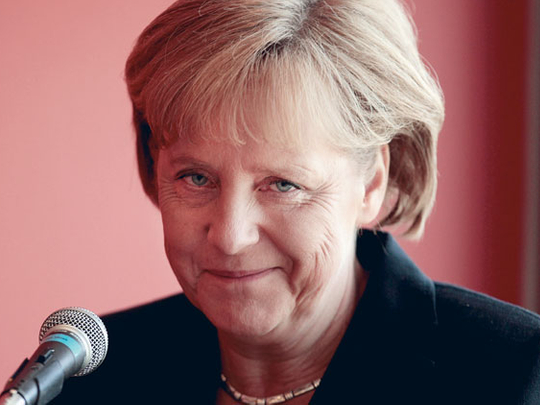
In the first half of the last century, Europe tore itself apart in two wars and destroyed its central role in world politics. In the second half of the century, farsighted leaders looked beyond revenge and gradually constructed the institutions of European integration.
The thought of France and Germany fighting each other again seems impossible, and the development of the European Union has greatly enhanced Europe's attractiveness and soft power in the world. Unfortunately, that historic achievement is now being called into question.
In May 2010, financial markets lost confidence in the ability of Greece to manage its budget deficit and to repay its debt. Fears of default began to affect other countries, such as Portugal and Spain, among the 16 members of the eurozone.
In response, European governments, the European Central Bank, and the International Monetary Fund arranged a 700 billion euro (Dh3 trillion) emergency eurozone rescue programme to calm the financial storms.
While that intervention provided a temporary respite, uncertainty persists in financial markets. Last month, German Chancellor Angela Merkel declared that, if the euro fails, "then not only the currency fails … Europe will fail, and with it the idea of European unity".
Constraints
European unity already faces significant constraints. Fiscal integration is limited. National identities remain stronger than a common European identity, despite six decades of integration, and national interests, while subdued in comparison to the past, still matter.
The enlargement of the EU to include 27 states (with more to come) means that European institutions are likely to remain sui generis, and unlikely to produce a strong federal Europe or a single state. Legal integration is increasing, and European Court verdicts have compelled member countries to change policies.
But legislative- and executive-branch integration has lagged, and, while Europe has created a president and a central figure for foreign relations, foreign and defence policy remains only partly integrated.
Over the decades, Europe has alternated between excessive optimism and bouts of "Euro-pessimism" such as the current period. As the journalist Marcus Walker recently put it, Europe "was supposed to come of age as an actor on the world stage, bolstered by the Lisbon Treaty.
Instead, Europe is starting to look like the loser in a new geopolitical order dominated by the US and emerging powers led by China". A "seminal image", according to Walker, was the meeting on December 18, 2009, that brokered the modest Copenhagen Accord — a meeting led by the US and the Chinese, who invited the leaders of India, Brazil, and South Africa, but no Europeans.
And now the recent financial crisis has exposed the limits of fiscal integration in the eurozone and raised questions about the role and future of the euro.
What is the future of Europe? As The Economist has noted, "talk of Europe's relative decline seems to be everywhere just now… You may hear glum figures about Europe's future weight and with some reason.
In 1900, Europe accounted for a quarter of the world's population. By 2060, it may account for just six per cent — and almost a third of these will be more than 65 years old".
Europe does face severe demographic problems, but size of population is not highly correlated with power, and predictions of Europe's downfall have a long history of failing to materialise. In the 1980s, analysts spoke of Euro-sclerosis and a crippling malaise, but in the ensuing decades Europe showed impressive growth and institutional development.
The American political scientist Andrew Moravcsik makes the argument that European nations, singly and collectively, are the only states other than the US that are able to "exert global influence across the full spectrum from ‘hard' to ‘soft' power. Insofar as the term retains any meaning, the world is bipolar, and is likely to remain so over the foreseeable future".
Moravcsik argues that the pessimistic prognosis is based on a 19th-century realist view in which "power is linked to the relative share of aggregate global resources and countries are engaged in constant zero-sum rivalry".
Moreover, as he points out, Europe is the world's second military power, with 21 per cent of the world's military spending, compared to five per cent for China, three per cent for Russia, two per cent for India, and 1.5 per cent for Brazil.
Tens of thousands of troops from the EU's member states have been deployed outside of their home countries in Sierra Leone, Congo, Ivory Coast, Chad, Lebanon and Afghanistan. In terms of economic power, Europe has the world's largest market, and represents 17 per cent of world trade, compared to 12 per cent for the US. Europe also dispenses half of the world's foreign assistance, compared to 20 per cent for the US.
But all this potential strength may be to no avail if Europeans do not solve the immediate problems stemming from financial markets' loss of confidence in the euro. All who admire the European experiment must hope that they succeed.
Joseph S. Nye, Jr, a former US assistant secretary of defence, is a professor at Harvard University and author of Soft Power: The Means to Success in World Politics.









